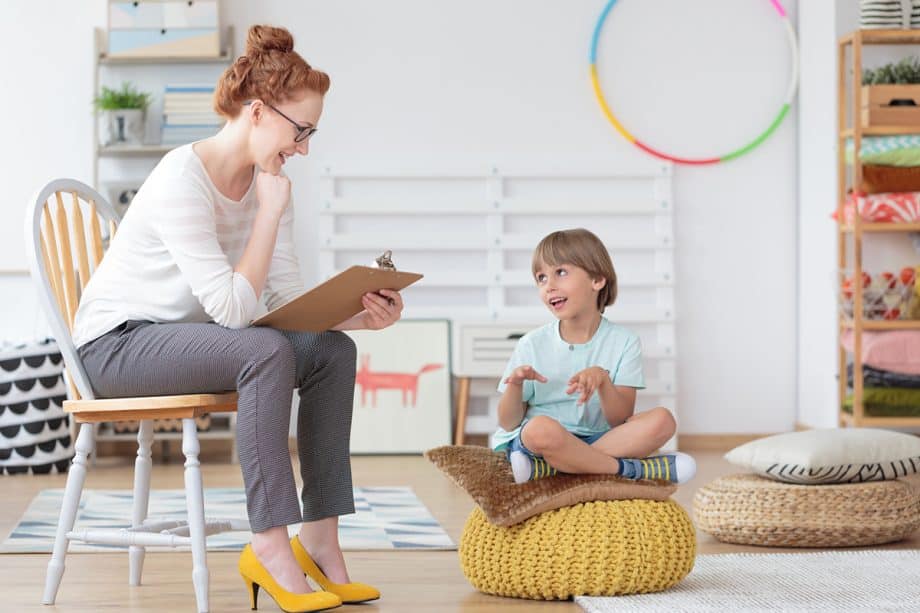Obsessive Compulsive Disorder, abbreviated as OCD, is a mental health disorder that affects nearly 4 million people in the United States alone, with about 500,000 of those affected being children. OCD is characterized by cycles of obsessions and compulsions that are so severe that they interfere with the person’s daily functioning. It is common for OCD symptoms to start during childhood, especially between the ages of 8-12 and the later teen years. OCD that begins during childhood is often referred to as pediatric OCD. OCD is often a lifelong struggle, requiring a unique combination of treatments to control the symptoms and give the person a sense of normalcy.
Symptoms of Pediatric OCD
Pediatric OCD is a pattern of obsessions and compulsions. While everyone may identify with some of these feelings, it is the severity of their effect on the child’s life that determines if childhood-onset OCD is the proper diagnosis.
Obsessions
Obsessions are unwanted thoughts and urges that feel too overwhelming for the child to control. Some typical obsessions in pediatric OCD include:
- Something terrible happening/impending doom
- Germs
- Getting sick
- Dying
- Perfection
- Violence
- Sexual deviance
A child with pediatric OCD will be overwhelmed with thoughts and/or urges related to their obsessions, rendering them unable to function in a healthy way. Instead, they will constantly ruminate over their obsessions, paralyzed by the emotions or searching for a way to relieve the building anxiety. That’s where compulsions come in the picture.
Compulsions
Compulsions are the actions a child feels that they must undertake to relieve the distressing feelings brought on by their obsessions. Compulsions can also be known as rituals. Compulsions may also be done proactively to prevent obsessive feelings from happening or to prevent some imagined event. Compulsions often relate to their associated obsessions, with common pediatric OCD compulsions including:
- Checking and rechecking
- Excessive cleaning
- Repetitive behaviors
- Repetitive thoughts or mental review of events
- Repetitive speech
- Seeking reassurance
- Excessive organizing, even of items that they do not own
- Compulsory prayer
- Frequent apologizing
The child will repeat the compulsion over and over until their feelings about their obsessions subside. Often, the obsessive feelings return quickly, compelling the child to repeat their rituals again. When this cycle of obsessions and compulsions takes up for more than one hour of the child’s day, a pediatric OCD diagnosis is likely warranted.
How to Address Pediatric OCD Symptoms
As soon as pediatric OCD symptoms are noticed, you should seek advice from your child’s pediatrician. They will do an evaluation and may refer you to a child psychiatry specialist for further evaluation and treatment. Always ask for a referral to someone who is experienced in the nuances of child psychiatry, as it is quite different from adult psychiatry and requires a specialized skill set.
Frequently Asked Questions About Pediatric OCD
Can OCD symptoms start before age 8?
Yes, pediatric OCD has been diagnosed in children as young as 3 years old. No matter the child’s age, it is important to seek help as soon as OCD symptoms are noticed.
Will OCD symptoms improve as my child gets older?
Maybe. While early treatment and intervention will help your child learn healthy ways to cope with their obsessions and compulsions, some OCD patients do report that their symptoms increased in severity as they aged.
Get Help for Pediatric OCD in Rhode Island
Early treatment of OCD symptoms often yields better outcomes for the child throughout life, as they learn at an early age how to handle their obsessions and compulsions in healthy ways. For pediatric OCD treatment in southern New England, there’s nowhere better than with the experts at South County Psychiatry. With five convenient locations spanning Rhode Island, Connecticut, and Massachusetts, we’re right where you need us. Contact us nearest to you to schedule a child psychiatry appointment today.

